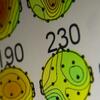Master of Science in Neuromotor Science
The Master of Science in Neuromotor Science at Temple’s College of Public Health examines the neural and sensorimotor factors of human movement: how humans learn, perceive and control movement. This interdisciplinary master’s program advances understanding of neuromotor control and biomechanics of human posture and movement, in individuals across the lifespan and the spectrum of health and disability.
Students in the program begin with a series of core courses that examine the foundations of neuromotor science, including neural factors, mechanics and models, and cognition and learning. You will learn to assess neuromotor function and its impact on health, functioning and disability. Electives in a range of disciplines allow you to tailor your coursework with the guidance of faculty members and the program director.
Graduates of the program are prepared to develop interventions to improve human movement, particularly posture and locomotor control and function across the lifespan. They are able to pursue careers as researchers and educators at universities and research institutions, healthcare systems and in industries related to human health and movement, such as medical technology. Graduates also continue their studies in the PhD program.
What sets apart our Neuromotor Science MS program?
- A unique curriculum: Temple’s Neuromotor Science MS program is unlike any other in the country. It combines the studies of neurophysiology, cognition and learning and biomechanics of the sensorimotor system and examines the impact of health conditions, disease and disability on human movement.
- Interdisciplinary training: Students study with faculty in a wide range of disciplines, including engineering, kinesiology, neuroscience and physical therapy. This gives them a comprehensive understanding of both neuromotor processes and the technology needed to study them.
- Renowned faculty: Students collaborate with nationally recognized faculty in the Neuromotor Science Research Consortium, a state-of-the-art research facility with a network of labs that involve expertise across fields and disciplines.
Program Format
Full-time study is encouraged but not required. Students can complete the degree in two years by studying full time, or complete it in three to four years by studying part time. Courses are held on-site at Temple’s Main Campus.

